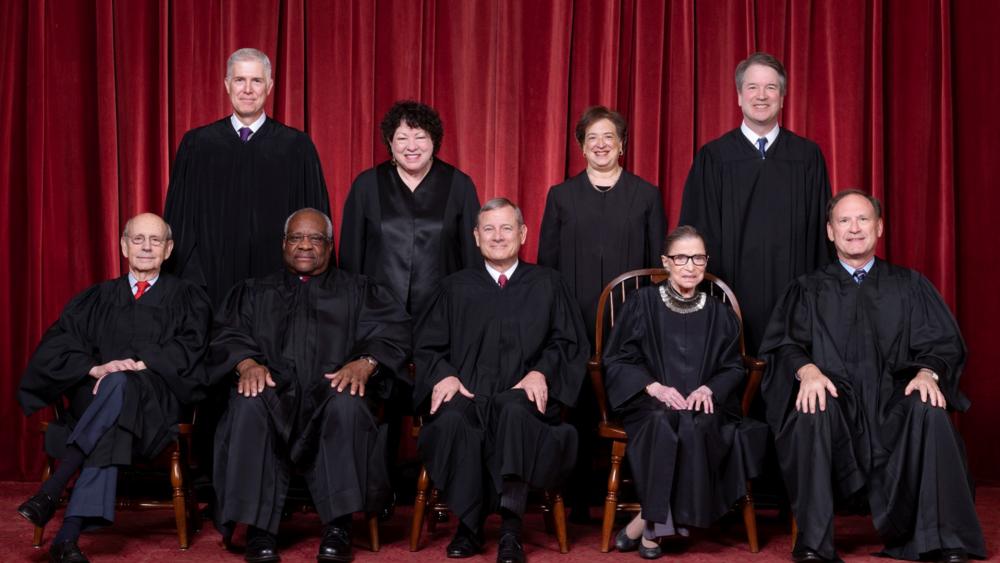More than 200 members of Congress have signed a friend-of-the-court brief urging the US Supreme Court to reconsider the 1973 Roe v. Wade decision that made abortion legal nationwide.
01-03-2020 Deborah Bunting
According to The New York Times, 39 senators and 166 House members – all Republicans except for two Democrats signed the brief to support a Louisiana law in a case called June Medical Services L.L.C. v. Gee. In their brief, they also asked the justices to reconsider Roe and another landmark abortion ruling that followed it in 1992, Planned Parenthood v. Casey.
The brief supports a law passed in Louisiana in 2014, but that has not taken effect due to legal challenges that have finally landed it before the high court. The law states physicians performing abortions at clinics must have admitting privileges at a nearby hospital, a requirement the law’s supporters say is intended to help guarantee the competency of doctors, and to protect the health and safety of mothers seeking an abortion.
Opponents of the law say its real purpose is to limit access to abortion, which they say it severely does. The New York Times reports that only one abortion doctor in Louisiana has been able to meet the admitting privileges requirement. Democrat lawmakers in Congress have filed a brief in the case as well, opposing the Louisiana law.
The Louisiana law is the first dealing with abortion to come before the Supreme Court since Justices Neil Gorsuch and Brett Kavanaugh, both nominated by President Trump, were seated on the court. This amicus brief filed mostly by Republicans in Congress is the first to directly challenge the precedent of Roe v. Wade and other decisions that followed and based their conclusions on Roe.
When Roe v. Wade was handed down by the Supreme Court in 1973 it was criticized as the epitome of judicial activism, with justices seen as “legislating from the bench,” and actively creating a national law that torpedoed abortion laws actually passed by legislatures across the country. The result has made abortion the most contentious social issue and political hot potato since the court ruled in the infamous Dred Scott decision that black people were never intended to be citizens of the United States, and supported laws saying they could not be counted as full persons.
The brief, signed by 207 mostly Republican lawmakers, goes after Roe, saying that “Forty-six years after Roe was decided, it remains a radically unsettled precedent,” and noted the “unworkability” of the “right to abortion” found in Roe v. Wade and decisions based on it that followed.
But Katie Glenn, an attorney for Americans United For Life, the pro-life group that drafted the brief, told the Times she has no illusions that this Louisiana case will be the final blow to the much-disputed Roe.
“No one is going into this case with an expectation that Roe v. Wade will be overturned,” Glenn said. “However, the court has the opportunity to reconsider the precedent that has gotten us to where we’re at, and that’s all that the members of Congress were seeking to point out, that it is the court’s prerogative to assess the jurisprudence that got us here.”
That includes the reconsideration of Planned Parenthood v. Casey, the 1992 decision that reaffirmed the right to abortion but said that states could restrict it as long as they didn’t impose an “undue burden” on it. Opponents of the Louisiana law will argue that it does hit that “undue burden” standard and that it should be overturned. A similar Texas law was struck down in 2016, based on that standard.
But the amicus brief criticizes Casey’s “undue burden” criteria as “vague” and “opaque” making it difficult for judges in Louisiana and elsewhere to know what it really means.
The court will hear oral arguments in the Louisiana law case in March. A ruling is expected in June.
However, the court rules, expect abortion to remain the hot button issue of our time that just won’t go away. Namely, because it deals with the issue of life and death, and secondly, largely because of how the high court discovered a “right to abortion” in the first place.
Source: CBNNEWS.COM

